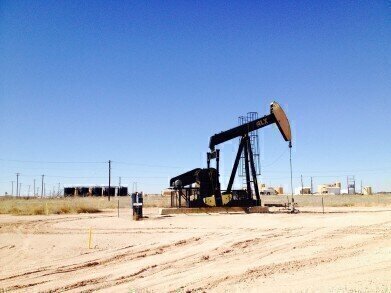Air Clean Up
New Study Finds Fracking Would Exacerbate Local Air Pollution
Mar 27 2016
According to a new report from the Newcastle University, the process of hydraulic fracturing (fracking) would increase local air pollution levels by up to 30%. The study, which was published in the journal Environment International, also predicted that the industry could cause permanent damage to rural roadways and cause nearby residents distress in the form of excessive noise pollution.
The disadvantages uncovered by the study mainly stemmed from the increased traffic on rural roads. This would be caused by the necessity for tankers to transport water to and from drilling sites, with individual sites sometimes require hundreds of separate journeys in a condensed period of time.
“Substantial Increases in Local Air Quality Pollutants”
The report mapped out a hypothetical traffic route for tankers ferrying supplies to and from six potential sites over a total period of 85 weeks. Estimated levels of nitrogen oxides (NOx) rose by an average of 6% over the whole cycle, while they were found to skyrocket to as much as 30% during the most intense periods of activity.
It concluded that the total rise in air pollution on a national level would be minimal, but could pose serious concerns on a local level. “The traffic impact of a single well pad can create substantial increases in local air quality pollutants during key activity periods,” it explained. At a time when improving air quality and reducing transport-related pollution is a priority, such figures are surely unacceptable.
It also pointed out that some of the emissions could be avoided if tankers were to schedule their routes during nocturnal periods to alleviate congestion. However, this would come with the disadvantage of elevated levels of noise pollution, which could disrupt nearby residents as they try to sleep.
Furthermore, it also added that many rural roads were not equipped to deal with such heavy vehicles, including 40-tonne tankers, which could do serious damage to them. “If we don’t have a potholes budget, it may become problematic as to who pays for the repair of the roads,” said Dr Paul Goodman, one of the authors of the study.
Another Nail in the Coffin of Fracking?
The latest findings by the team at Newcastle University are just the most recent environmental peril that fracking poses. The USA has profited immensely from the practice on a financial level, but it was confirmed in January 2014 that a definite link between fracking and polluted water sources exists. As such, enthusiasm for fracking across the pond has waned in recent times.
Meanwhile, another American study from June of the same year showed that fracking could cause greater levels of soil pollution, thus compromising the arability of the land and jeopardising human and animal health.
Now, the fact that it seems fracking would also diminish air quality levels (at least for local residents) appears to be a further nail in the coffin of this controversial practice. Regardless, the Tory government seem intent on investing on the method, endorsing it as they have throughout all of its various controversies.
Events
May 05 2024 Seville, Spain
May 13 2024 Munich, Germany
May 23 2024 Beijing, China
May 23 2024 Beijing, China
Jun 10 2024 Algiers, Algeria














